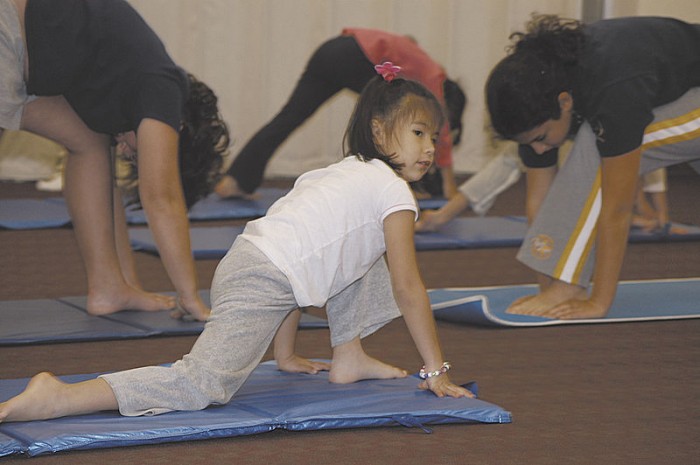Each day we wake up to an entirely new set of circumstances: a new body, a new mind, a new environment.
What we were able to do yesterday, we may not be able to do today, and what we could not do yesterday, we may be able to do today.
If we come to our mats (or indeed, our lives, because as always, yoga is a direct analogy to all of life) expecting one thing or another, our practice is already compromised. We must strive to have the mind of a child who has not yet developed notions about who she is and what she can do, but is filled only with the wonder of possibility.
As with all simple truths, this is easier said than done.
The human brain was designed to collect data, analyze it and create theories which are then tested and become ingrained behavior—often beyond their usefulness—so that we could survive. If we had to wake up each day and discover anew how to feed ourselves, we would never have the ability to move on to anything else.
And while our data collecting and analyzing brains are therefore critical to survival, they also impede us with false projections. For example, I might think, “I couldn’t do sirsasana (headstand) yesterday, I will never be able to do it,” instead of, “I wonder if I will be able to do sirsasana today.”
The good news is, yoga gives us the perfect opportunity to practice not attaching to preconceived ideas. We are safe on the mat, and we can let down our guard as we can not perhaps in any other situation.
As we allow ourselves to learn the difference between moments when we need to rely on stored information and moments to which we can arrive completely fresh, we learn that much more of our life may be lived in the uncomplicated present than we may have suspected. Living in the present moment is one of the most effective ways to fully enjoy and engage in this precious life.
To practice yoga with the mind of a child we need to do two things: believe in magic and make fun a priority.
Believing in magic.
To children, anything is possible. Big fat men in red suits who slip down millions of chimneys bearing gifts one night a year is a given, so it’s not much of a stretch to believe they themselves might do something magical as well.
As adults, we need to recapture that belief. The magic will manifest in unexpected ways—a spontaneous connection with another soul, a sudden opening of the mind or clarity of thought, sirsasana (but only if we give ourselves permission to not know everything).
And when the magic does come, we need to give ourselves further permission to accept it, without judgment, and simply revel in its transformative power.
Making fun a priority.
At the top of every child’s to-do list is the same basic directive: have fun! The reason for this is that by playing, we allow ourselves to grow in all directions.
As we become adults our “fun” becomes relegated to off hours when we are so tired from the business of living that we choose passivity—we drink, we sleep, we watch movies and TV– instead of engagement.
But for children fun tends to be active, or it should be anyway. Tree climbing, drawing with sidewalk chalk, running through the woods with a dog, building a house of cards—true fun happens when our minds are free to wander and our hearts are open.
Recapture that sense of innocence on the mat by not regarding your practice as work or a chore, but as a time to mess around and just see what happens. Experiment, play and laugh throughout your practice—by doing so you will be lighter and looser and make room for the magic to happen.
We can never fully regain our childhood innocence, but cultivating moments when we think with the mind of a child will, ironically, make us more wise by bringing us into the “now.”
If we can stop taking ourselves so seriously and un-furrow our burdened brows, at least while we are on the mat, we might find that the world really is as magical as we always suspected it to be when we were small.
Love elephant and want to go steady?
Sign up for our (curated) daily and weekly newsletters!
Editor: Travis May
Photo: Wiki Commons







Read 0 comments and reply